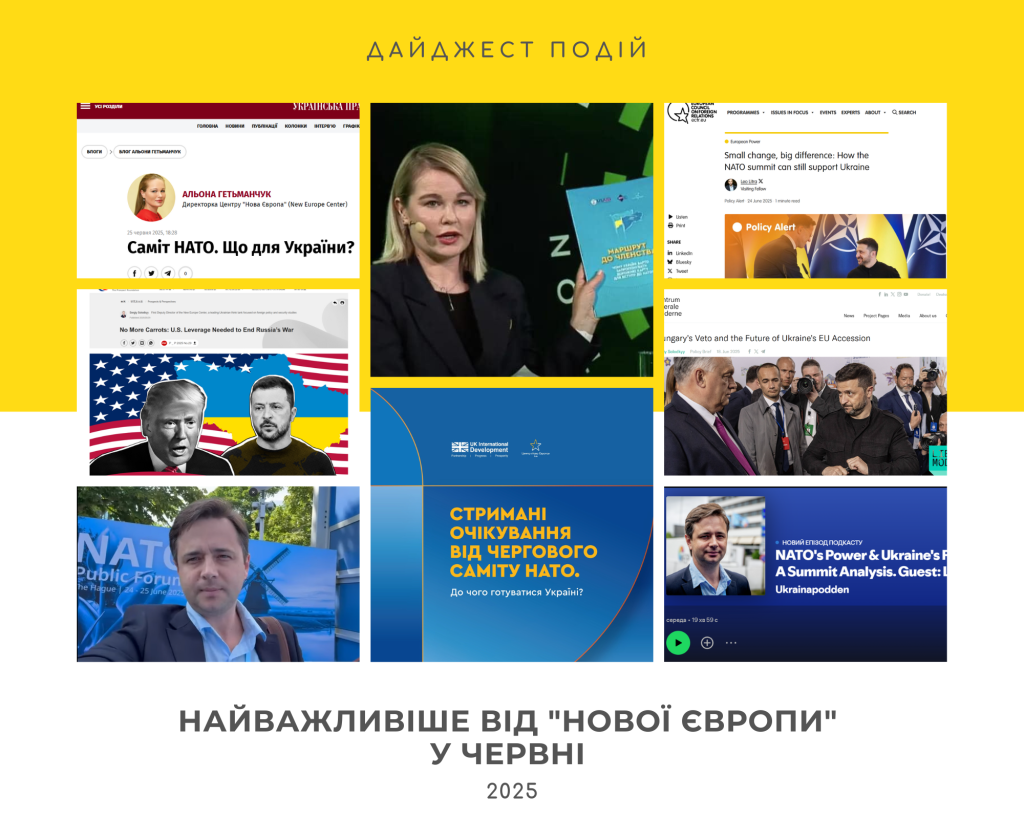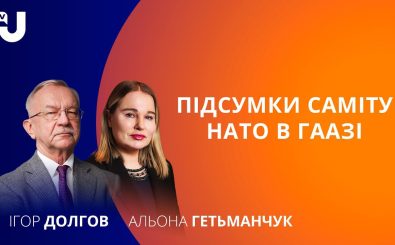Leo Litra’s follow-up material on the research presentation “Third powers in Europe’s east” prepared by the European Union Institute for Security Studies (France).
Third powers in Europe’s East. China, Israel, Turkey, Iran, Arab countries and their interests in Eastern Partnership (EaP) countries, with a particular focus on Ukraine. Thanks to European Union Institute for Security Studies whose representatives came to Kyiv to present their report, New Europe Center organized a discussion on the third powers, adding a Ukrainian flavor to the current debate.
We concluded that the rise of third powers, particularly China, is taking place significantly in the last decade and quite naturally. There are many prerequisites which advance the interests on third powers in our region. First of all, the boosting economic power that goes beyond borders and thus projects its interests on the map of Eastern Europe. But also, the void that is created by the fact that traditional actors such as EU, US and Russia are leaving room for a greater involvement to third powers.
However, the key questions to understand are:
- What these countries would like to achieve and is it good or bad for Ukraine and other EaP countries to cooperate with third powers?
The short answer is that it is good and bad at the same time. Now let’s look at this issue in more detail.
- Why are the third powers interested in the region?
The economic expansion of the third powers in Europe’s east is generated partly because of Russian economic decline, which created room for new actors.
Quite often, third powers and particular China, has a mercantilist agenda. Among the top interests are their exports, including that of technology. At the same time, third powers are also willing to get access to technologies they do not have – being it in the area of military or space exploration. Quite often these countries also look for opportunities to explore natural resources in the EaP countries, including the agri-food sector.
Moreover, sometimes, third powers use EaP countries to get rid of certain limitations and sanctions. That was the case of Turkey which used Belarus for continuing trade with Russia when the economic relations were disrupted.
- What are the interests of the EaP countries towards the third powers?
Ukraine and EaP countries are also interested to access new markets as these want to replace Russian market, which is often inaccessible because of political-driven economic embargos like those in the case of Georgia, Moldova, and Ukraine. It is quite important that the third powers, such as Turkey and China, are not dragging EaP countries into their own integrationist economic projects.
The agri-food sector deserves a separate attention since it is the most powerful instrument that Ukraine could use in order to balance its relations (and trade) with third powers. Ukraine is a top supplier of agri-food products to many countries, including China in some areas like corn. The same is valid for the Middle East countries, which rely on Ukraine’s exports of agri-food products in several areas (e.g. grain).
There are also political and security reasons to engage with third powers. Sometimes, Ukraine might need their votes in UN institutions and vice versa. This has particular importance at times of crisis. That was the case during the 2008 Russian-Georgian war of 2014 Russian-Ukraine war, which the victims of Russian aggression were seeking for diplomatic support.
However, the EaP security sector per se is not really penetrated by the third powers. Rather, some EaP countries experiment by trying to translate the economic cooperation with the third powers into security guarantees. For instance, Georgians handed over the control of Poti port to a Chinese company, hoping that in case of an attack from Russia, Kremlin will not dare to destroy Chinese property.
Third powers and the EaP: the EU perspective
From the EU perspective, the more EaP countries trade with outside world according to transparent rules, the better. At the same time, these countries pose a threat to the EU normative power by providing conditionality-free and corruption-ridden economic choices. It is noteworthy that by signing AAs and DCFTAs with the EaP countries the EU has increased their competitiveness and attractiveness to the third powers.
Few considerations on separate countries:
China
Ukraine is the only country in the region in which China has so much interest, for several reasons:
- Military – China bought aircraft carrier from Ukraine. It is also interested in the joint design production possibilities offered by Ukraine; aircraft engines, etc. At the same time, NATO and the EU is concerned about Ukraine’s exports of military products to China and Ukraine will need to take this into consideration.
- One Belt, One Road – Ukraine was not able to profit because of the Russian transit blockade. Ukraine wants to join 16+1 but China cannot accept because of Moscow. China is interested in FTA with countries that have DCFTA with the EU. Ukraine is top interest for China, however, it is not clear if this serves the interest for Ukraine.
- Agriculture and food security is key issue for China since the latter suffers of industrialization and might have problems since it buys too much from the US. Chinese companies completed projects in Yuzhne, Chornomorsk, Mykolaiv. Other plans include road highway between Odessa and Mykolaiv. China also explores the energy potential of Ukraine, particular the CNNC and Energoatom MoU which could turn into serious cooperation. Some other projects refer to infrastructure projects like the train from Boryspil and Kyiv metro, but these are still pending. At the same time, China is interested in stability – Revolution of the Dignity and subsequent conflict with Russia on Ukraine’s territory has prevented China from further investments in Ukraine.
- The cooperation with China is something that you cannot avoid, since the Chinese are coming without asking you. What Ukraine needs to do is to manage this relation and to align it to its interest and mutual understanding.
- The potential of cooperation with China is enormous and we have to think how China could help Ukraine get out of its troubles with other countries like Russia. China is interested in infrastructure and agri-food and we have to develop this into a systemic, rather than sporadic (as it is now) cooperation. Certainly, we need to consider position of US and EU, but at the same time to find ways of cooperation.
Turkey
Turkey is a very important country, often disregarded by Ukraine’s political outlook. Russia is increasing its presence in Turkey though the gas pipeline TurkStream; nuclear power plant and S400 military which means Russia is going be there for a long time. On the other hand, Turkey remains a NATO member and is loyal to its Euroatlantic commitments. We need to be pragmatic and find a way to increase our own leverage.
Ukraine has about 2-3 million of Crimean Turks which helps to make the case for Ukraine, but we need economic tools as well. “Apple diplomacy” does not work because, despite that Ukrainian exports account for about 30% of the Turkish market of apples. And an FTA with Turkey is a painful question first of all for Ankara, which, using the same example, does not want to see Ukrainian apples that cost 5 UAH (appr. 0,16 EUR) – Turkish products will not be competitive.
Middle East
The relations with Middle East countries develop positively, especially in the area of trade. Ukraine has a positive trade balance with Israel. Moreover, Ukraine is becoming a key supplier of agricultural products to Middle East countries – which increases the impact if Ukraine in the Middle East. One of the striking examples of the interconnectedness between Ukraine and the Arab states is an assumption that the Arab spring was, inter alia, caused by poor harvest in Ukraine and hence food shortages in the Middle East. Thus, Ukraine has a serious instrument of influence in these countries, but it does not use it yet and we need to reflect in how this could be possible.
Military cooperation is one of the avenues of cooperation with Gulf countries.
As for Israel, positive trade balance is very important. Moreover, 500000 people from Ukraine moved to Israel, which provides another means to exert soft power. About 200-250 thousands of Israelis are visiting Ukraine every year.
While Ukraine should take the US and EU positions into consideration when dealing with third powers, it should also take a proactive position and develop a strategic view on its cooperation with them. With the world getting increasingly smaller, Ukraine should be aware of its interests and leverages on the third powers and apply them smartly in order to increase its weight in the region and globally. However, we need to make sure that our cooperation is sustainable.
You can find more info about the research presentation here.







